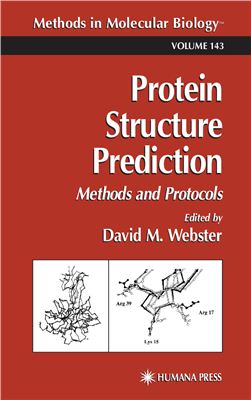Methods in Molecular Biology, vol.143, Humana Press, 2001, 410
p.
World-class investigators detail their most successful methods-and the theory behind them-for delineating the shape, form, and function of proteins. The protocols range from basic to advanced and include sequence alignment, the prediction of transmembrane protein structure, and the development of suitable folding potentials. There are also techniques for receptor site prediction, the identification of motifs and domains, the comparative modeling of proteins, the docking of peptides and ligands, and ab initio approaches to protein loop and side-chain prediction. Comprehensive, accessible, and highly practical, Protein Structure Prediction: Methods and Protocols offers protein researchers, structural biologists, and other investigators a critical synthesis of the latest research results, as well as the vital guidance needed to understand the structure and interaction of proteins and peptides.
World-class investigators detail their most successful methods-and the theory behind them-for delineating the shape, form, and function of proteins. The protocols range from basic to advanced and include sequence alignment, the prediction of transmembrane protein structure, and the development of suitable folding potentials. There are also techniques for receptor site prediction, the identification of motifs and domains, the comparative modeling of proteins, the docking of peptides and ligands, and ab initio approaches to protein loop and side-chain prediction. Comprehensive, accessible, and highly practical, Protein Structure Prediction: Methods and Protocols offers protein researchers, structural biologists, and other investigators a critical synthesis of the latest research results, as well as the vital guidance needed to understand the structure and interaction of proteins and peptides.

